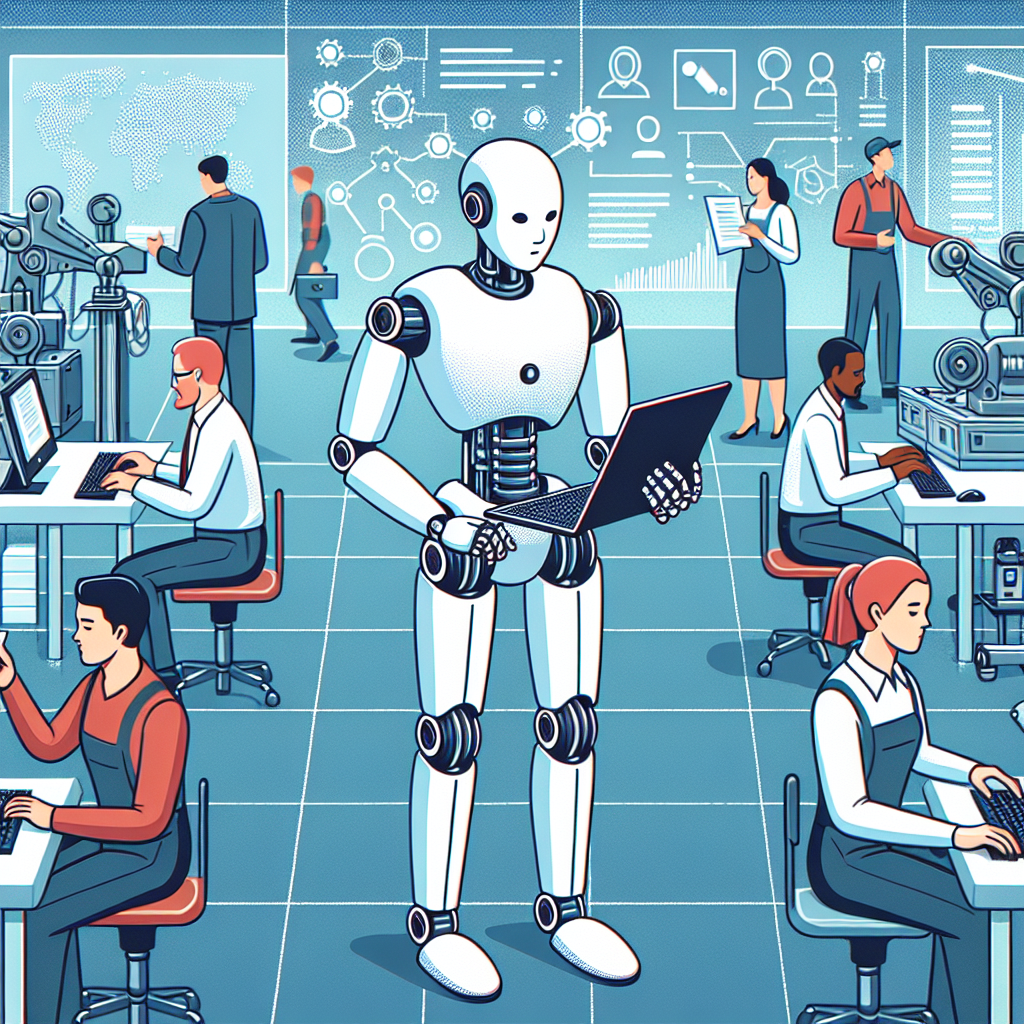Artificial General Intelligence (AGI) is a term that refers to a type of artificial intelligence that possesses the ability to understand, learn, and apply knowledge in a wide range of tasks. While current AI systems are highly specialized and can outperform humans in specific tasks, AGI aims to achieve a level of intelligence comparable to that of a human being, with the ability to perform a variety of cognitive tasks at a level equivalent to or surpassing human capabilities.
The development of AGI has the potential to revolutionize the way we work and live. With the ability to perform a wide range of tasks with human-like intelligence, AGI could automate many jobs that are currently performed by humans. This raises the question: How will AGI impact jobs in the future?
Impact on Jobs:
1. Automation of Routine Tasks: One of the most immediate impacts of AGI on the workforce will be the automation of routine, repetitive tasks. Jobs that involve simple, rule-based tasks such as data entry, customer service, and assembly line work are likely to be automated by AGI systems. This could lead to job displacement for workers in these industries.
2. Increased Productivity: AGI has the potential to greatly increase productivity in many industries by streamlining processes, reducing errors, and improving efficiency. This could lead to job creation in new industries and roles that require human creativity, problem-solving, and interpersonal skills.
3. Job Displacement: While AGI has the potential to create new job opportunities, it is also likely to lead to job displacement in certain industries. Workers in roles that can be easily automated by AGI may find themselves out of work or in need of retraining for new roles.
4. Skills Gap: The rise of AGI will require workers to develop new skills to remain competitive in the workforce. Jobs that require human creativity, critical thinking, emotional intelligence, and interpersonal skills are likely to be in high demand in the future, while jobs that can be easily automated by AGI may become obsolete.
5. Redistribution of Wealth: The automation of jobs by AGI could lead to a widening wealth gap between workers who possess the skills needed to thrive in a post-AGI economy and those who do not. This could lead to social and economic inequality if not addressed through policies that promote retraining, education, and job creation.
FAQs:
Q: Will AGI replace all human jobs?
A: While AGI has the potential to automate many jobs, it is unlikely to replace all human jobs. Certain roles that require human creativity, emotional intelligence, and interpersonal skills are likely to remain in demand in the future.
Q: How can workers prepare for the impact of AGI on jobs?
A: Workers can prepare for the impact of AGI on jobs by developing skills that are less likely to be automated, such as creativity, critical thinking, emotional intelligence, and interpersonal skills. Lifelong learning, retraining, and adapting to new technologies will be essential for workers to remain competitive in a post-AGI economy.
Q: What role can governments play in addressing the impact of AGI on jobs?
A: Governments can play a key role in addressing the impact of AGI on jobs by implementing policies that promote retraining, education, and job creation. Investing in workforce development programs, supporting lifelong learning initiatives, and implementing policies that ensure a fair distribution of wealth can help mitigate the negative impact of AGI on jobs.
In conclusion, AGI has the potential to revolutionize the way we work and live, with the automation of routine tasks, increased productivity, job displacement, skills gap, and redistribution of wealth being some of the key impacts on jobs. Workers will need to adapt to new technologies, develop new skills, and remain flexible in order to thrive in a post-AGI economy. Governments have a role to play in addressing the impact of AGI on jobs through policies that promote retraining, education, and job creation. The future of work in a post-AGI world will be shaped by how we adapt to and harness the potential of this transformative technology.

